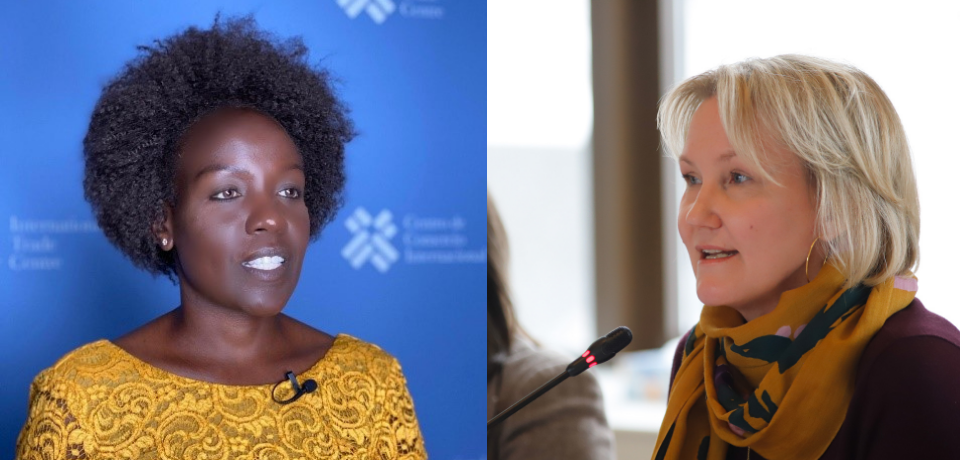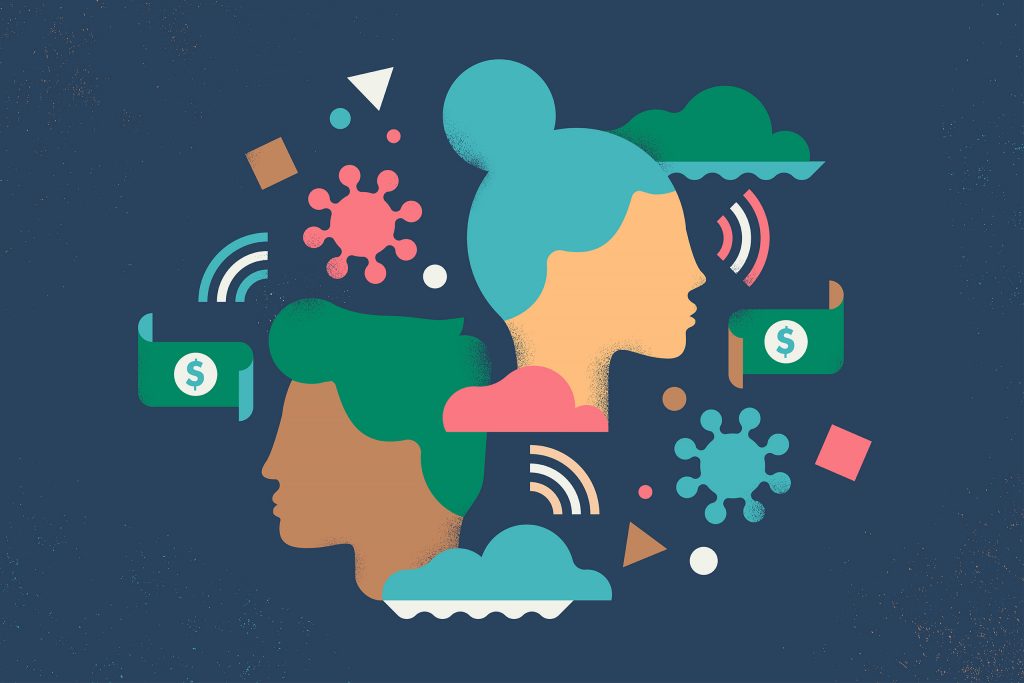Author: Bojana Dujkovic Blagojevic
BiographyBojana Dujkovic Blagojevic
Bojana Dujkovic Blagojevic, from Bosnia-Herzegovina, has long standing experience in education as teacher and in-service trainer. She is a representative of the ‘Learning History that is not yet History’ team from the Balkans, one of the 2019 winners of the Global Pluralism Award. This network of historians and educators have been working for over 16 years to develop a responsible, non-biased way of teaching the history of the recent wars in the former Yugoslavia. Watch the video.

When the merry-go-round stopped
When I think about the time before the pandemic, I picture a merry-go-round. The small one, which is part of every playground, that spins as you push it with one leg. It can be quite fast, depending on how strongly you push. If you stop pushing, it will eventually stop spinning.
Before the virus outbreak, we were speeding through everything in life. We always had one more necessary trip to make, one more important meeting to attend, and not much time to spend with parents or friends. We did not have the time, or we completely avoided, being alone with ourselves. And then the unthinkable happened – everything stopped. Travel, flights, jobs, and then finally us once we were ordered to stay home. Overnight, the world changed as jobs relocated to home offices, meetings moved online, and schools and kindergartens were closed. The merry-go-round stopped spinning.
The pandemic has opened up the classroom’s ‘black box’
While we have had to adjust to many new ways of living during the pandemic, education and schooling has been perhaps the most interesting and challenging at times. I often think of a classroom as a sort of ‘black box.’ What happens there usually stays between a teacher and their students. The classroom is a place where learning takes place, where one learns from mistakes and new attempts with the involvement of the whole class. There is laughter, joy, sadness, and love. Sometimes, injustices are suffered, but it all falls under the ‘faculty of life.’
Teaching lessons progress with student’s participation as a dialogue, not a monologue – school is so much more than lectures and tests. An important segment of learning, especially in younger years, is through playing with peers. You cannot sit in the protected environment of your home and learn how to stand up to a bully, or to help a friend. These skills are taught in community with your peers. The coronavirus has removed all of that from the learning experience.
In my country of Bosnia and Herzegovina, education authorities have attempted to compensate for the disruption to learning in a number of different ways. Lessons were organized by means of lectures on TV, online tools, applications like Viber and WhatsApp, and even through SMS messaging. Many teachers did not wait for official instruction, but instead followed their instincts to do what they could to support their students. They addressed them and tried to maintain an appearance of normality. As education moved online, homes became the new classroom. As a result, many parents have become hyper aware of what goes on between teachers and students. The coronavirus has opened up the ‘black box.’
For over two decades in Bosnia and Herzegovina, there has been a strong debate about education. What kind of education do we need? Should education exclusively answer the needs of the labour market? What do we teach our children and what knowledge and skills should they have when they finish their schooling? Occasionally, people had advocated for the modernization of education and a migration to digital platforms – books are old-fashioned, they argue, and our children will be using computers, so why bother with teaching them nice handwriting?
But there is one question that rarely appears in these debates – who teaches our children and how? What are these teachers like, who our children spend such a large part of their day with? How do they work, and under what conditions? Are they satisfied with their jobs? With teaching now happening within the home, these questions have been brought to the forefront.
I have witnessed a number of critical comments about the quality of current online teaching initiatives. Mistakes are counted and teachers’ insecurities have been picked on. Educational content, and teachers themselves, have come under intense public scrutiny. We have completely forgotten that most of these teachers have never been trained to do this kind of teaching.
I am confident that our children have learned a lot of life’s lessons during this pandemic – specifically, lessons about responsibility and how to protect themselves and others. Distance learning has functioned, with some minor difficulties, and educational continuity was secured. However, I think that the pandemic has made all of us realize a few important challenges that need to be addressed:
Teachers need support and training on how to teach online and use different online tools.
Securing access to the internet and online learning for all students is a challenge. National minority groups must not be forgotten. They have a right to education in their native language.
Online spaces can be hostile and dangerous: The Council of Europe Steering Committee for Education Policy and Practice recently reported increasing cyberbullying and hate speech in online communication and learning during the period of the coronavirus outbreak. (Special COVID-19 online Plenary Session, April 24, 2020).
Children need to be in touch with other educators beyond their classroom teachers, including pedagogues (teaching assistants and student advisors) and school psychologists. These professionals support children, but also teachers and help them overcome a wide range of issues.
What have we learned?
For perhaps the first time, most of us parents had to seriously engage with our children’s educational process – to learn, clarify, motivate, and punish when needed (I don’t know how many times I have said that the Playstation will be locked up until homework gets done!). It was difficult to manage, particularly in the first few weeks – figuring out who has what for homework? How is it being sent? By whom? When is it due? And learning the various methods of facilitation through WhatsApp, Google Classroom, or even through the mail.
Coronavirus took all of us out of our comfort zones and pushed us into the learning accelerator. The pandemic has taught me that empathy is really the most important feature of good teaching. I know of educators who were sending homework by SMS messaging to their students who did not have internet at home; a teacher who delivered flower bouquets to the door of her prom students whose celebration was cancelled; or the one who scheduled Zoom meetings just to see their students, and to allow them to see each other. One mother told me she cried after a teacher’s comments on her son’s homework (the teacher noticed how much he has grown over the last two months) because she realized what the children have been deprived of during this time.
We need this empathy and understanding for the work of teachers and the role they play in students’ lives. This understanding needs to extend beyond the pandemic, and be carried into the ongoing debates about education in Bosnia and Herzegovina, and beyond.



